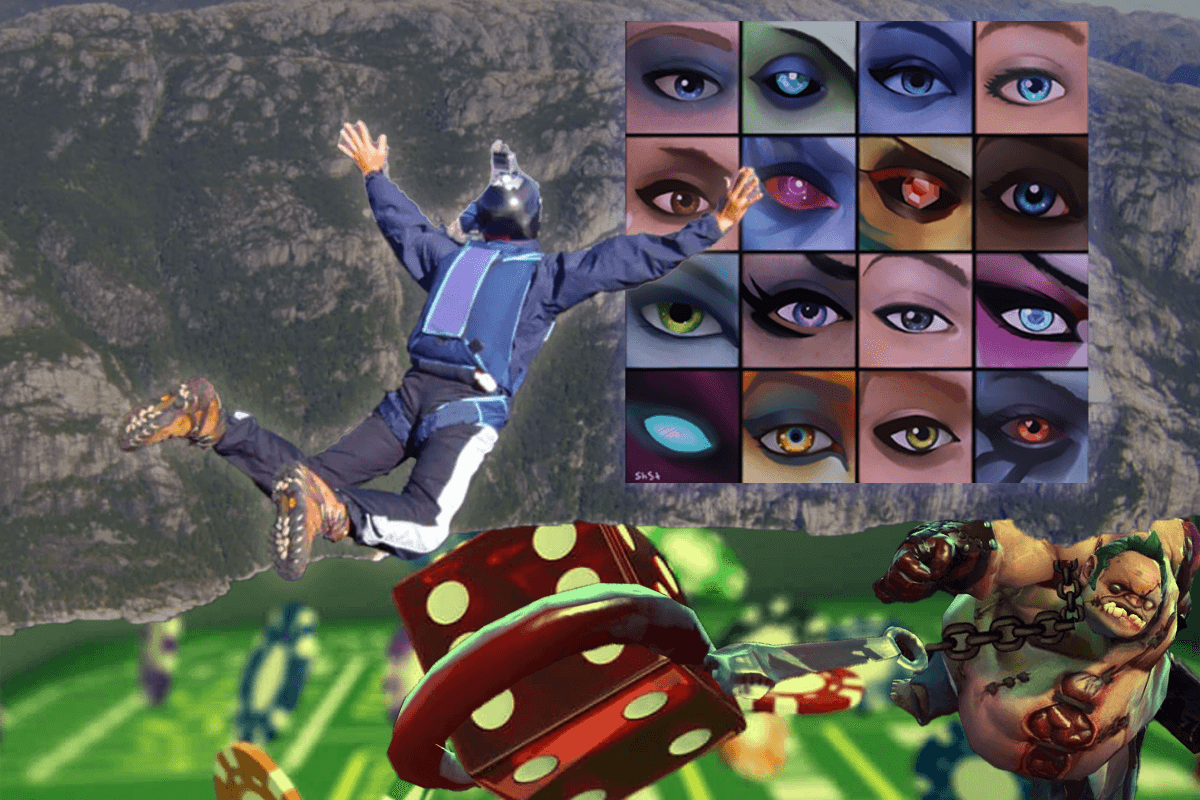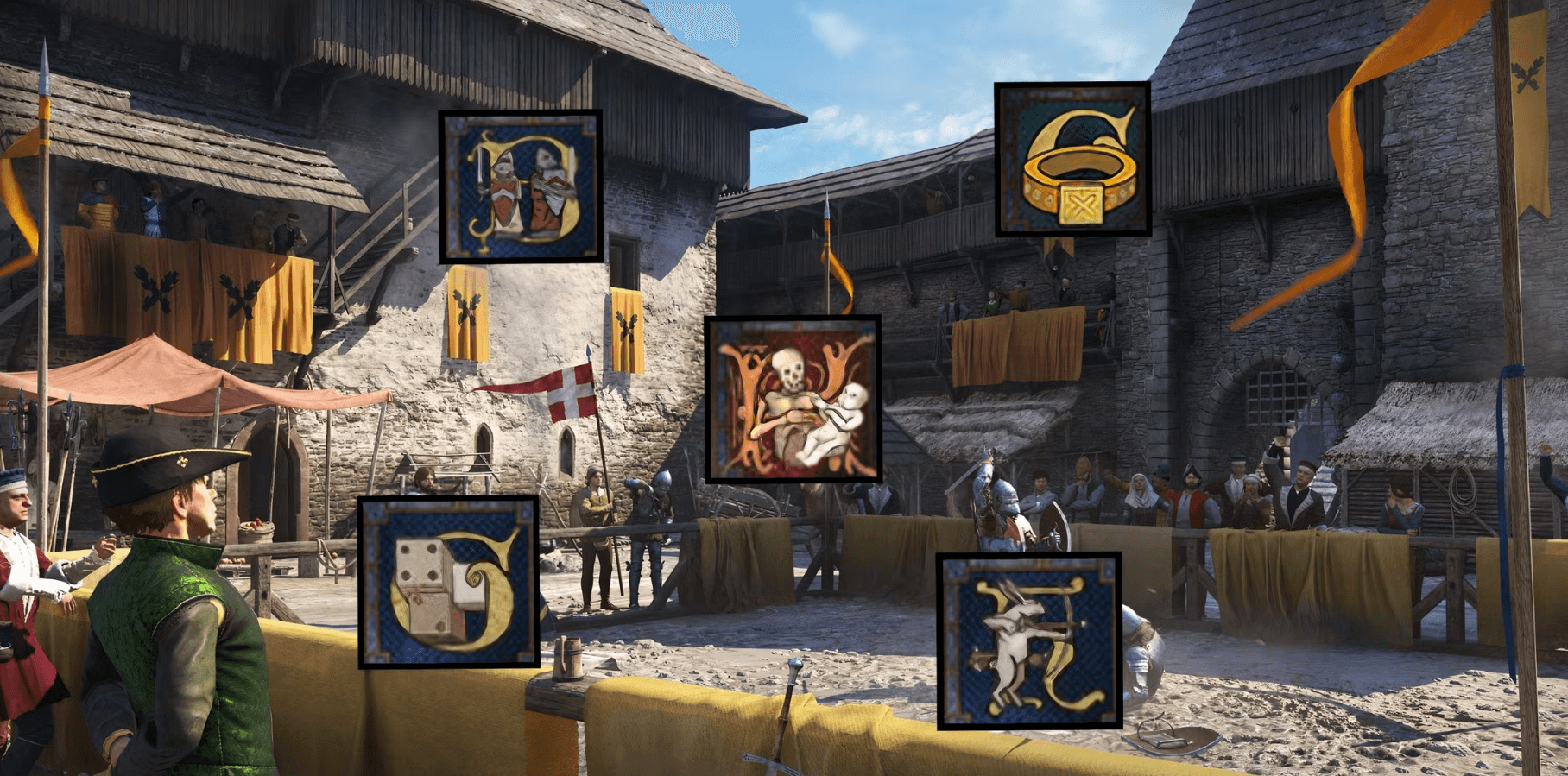Let me start by saying that I’m not here to convince you that video games can cure depression or replace human interaction. It might sound controversial – claiming that games help with depression – when we all know that excessive gaming can harm mental health. But what if we look at video games as a kind of medicine, and like any medicine, they should be taken in careful, moderate doses?
So how and where can games help us fight depression? What is actually beneficial in these bright, interactive worlds?
The Thrill of Competition like a Base jumping

Let’s start with the hardcore side – esports – and then move to the softer side – casual gaming. In this text, I will explain emotions, make comparisons, and try to convince you that gaming is good—as long as you don’t bet your whole life on it. As the classic wisdom goes, “Everything in moderation.”
Now, about emotions. I’m a highly sensitive person – I can shed a tear during a beautiful movie, even if it’s not sad. I savor a great game like cold juice on a hot summer day, sometimes spending six or seven hours just on the intro. I take simple truths from books to heart; they feel like solid ground beneath my feet. In short, I’m the kind of consumer who is easily influenced and manipulated.
I haven’t tried BASE jumping yet, and I’m pretty sure, dear reader, that you haven’t either. But you can still experience roof-blowing emotions without extreme sports. For example, try playing on Dota 2 gambling sites – oh yes, you know what I’m talking about! Okay, I’m exaggerating a little. Betting on esports is also an extreme activity because, while analytics might help you double your winnings, it also risks burning through your resources and developing an addiction, leading to double depression – haha. But I have to describe the high points on the spectrum of emotions that games can bring so that we can move from them toward softer, safer experiences.
I watch CS2, rooting for my favorite teams like Vitality, NaVi, and Team Next Level. When my favorite team is losing 5-10 but then manages to mount a comeback to 11-12, I don’t need to place a bet to feel the pressure and excitement. I simply cheer for them because I’m inspired by the team captain’s passion, or because they represent my country, or even because one of the players is a personal friend of mine. All these reasons make my pulse race and fill me with excitement.
Supporting your favorite teams might be less intense than betting on them, but it still creates intrigue and allows you to share in their joy or disappointment. Now, let’s move from the high-stakes world of The International and Major tournaments down to fan enthusiasm and regular gaming.
Experience gained

Congratulations, you’ve unlocked a new experience!
Video games often provide new experiences through vast open worlds filled with quests and breathtaking virtual landscapes. I previously wrote about a study from the Oxford Internet Institute, which found that high-quality games – like The Legend of Zelda: Breath of the Wild – positively impact the human brain. Logically, we could next discuss live-service games with microtransactions, but since we’re here to explore how games help combat depression and loneliness, let’s skip those and focus on immersive and memorable experiences.
Please accept this note as a reward, sir.
- Hollywood-style blockbuster? GTA 5.
- Historical novel? Kingdom Come: Deliverance.
- Post-apocalyptic drama? The Last of Us.
- Futuristic philosophy? Death Stranding.
- Superhero adventure? Marvel’s Spider-Man.
Movies can entertain us, but games, thanks to their interactivity, force us to adapt, observe, learn, and have fun. If you’re not into hardcore gaming, if you’re not an esports analyst for Dota 2 or any other competitive title, then choosing the right game is essential.
It’s easy – check Metacritic, read major publications like IGN and GameSpot, browse Steam and PlayStation Store top charts, and find something that suits you. Open this experience as if you were reading a book. And while seeking solace in a virtual world when feeling depressed might seem like cyberpunk fiction, playing a well-crafted game is still better than drowning in a sea of heavy thoughts.
Quality Escapism
Hiding in games for days on end is not quality escapism. Yes, sitting at home gaming is better than self-destructing with alcohol or overtraining at the gym, but choosing the lesser evil is still an unhealthy mindset that won’t help you overcome depression.
You won’t beat depression with games alone. You won’t beat depression alone. Are you even sure you have depression? Try art therapy! When people create, they forget about suffering – and that means they stop suffering.
Of course, if you have clinical depression, this article about games won’t help. But if you’re simply feeling down and lonely – create something. Write a journal entry, draw, sculpt, build, or at the very least, launch Minecraft’s creative mode.
Speaking of Minecraft, kids learn to construct mechanisms and build castles in it. I’ve seen Mojang’s books showcasing breathtaking structures, and you know what? They are breathtaking. The ability to learn and create, in games or in real life, is a meaningful escape from a harsh reality and an opportunity for self-expression.
Team Play
Online video games offer a powerful way to combat loneliness by fostering social connections in virtual spaces. Multiplayer games allow players to interact, cooperate, and build friendships with people worldwide. Whether through guilds, voice chats, or cooperative missions, these interactions create a sense of community, helping individuals feel connected even when physically alone. Games like MMORPGs or team-based shooters encourage teamwork and communication, helping players develop meaningful bonds that often extend beyond the game itself.
Beyond social interactions, online games provide structured escapes from loneliness by immersing players in engaging worlds with shared goals and achievements. For those struggling with isolation, logging into a game can offer a sense of purpose and routine—whether through daily quests, competitive matches, or long-term progression systems. Additionally, gaming communities, forums, and Discord servers create spaces where people can share experiences, support each other, and build lasting friendships. By offering both companionship and entertainment, online games serve as a valuable tool for alleviating loneliness.
Playing support in Dota 2 fosters teamwork and communication, as coordinating with teammates for vision control and clutch saves builds strong social connections, reducing feelings of loneliness.
Conclusion
Achievement Unlocked: “I’m not Alone (not sure)”.
Congratulations! You’ve reached the end of this text, and I congratulate myself if I managed to hook you into reading it all the way through.
Returning to the earlier mention of studies about the positive impact of video games on the human brain, I’ll add that games are even used in PTSD treatment. But let me be clear – you won’t find the key to happiness here. As Willem Dafoe once said, “I don’t give advice – everyone has their own way”.
I’ll repeat the classic wisdom: “Everything in moderation”. If you’re feeling sad, don’t hesitate – launch a game. If you’re just bored and seeking an adrenaline rush, scroll up and check out Dota 2 gambling sites – but remember, the higher you fly, the harder you fall.
Don’t thank me for this casual philosophy session – I thank you. Take care, gamers.

